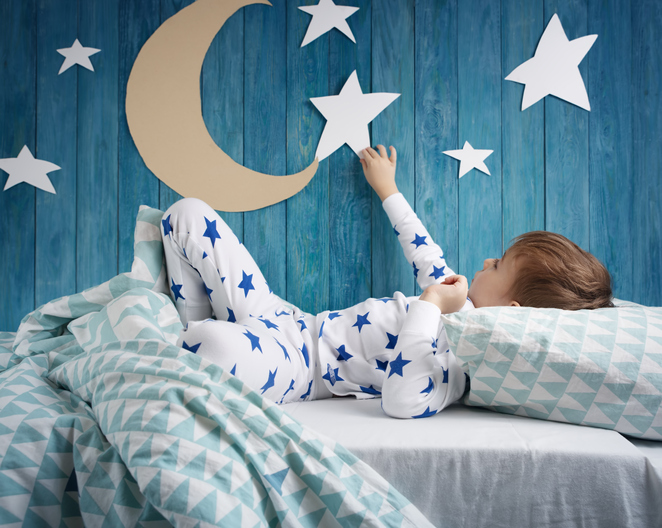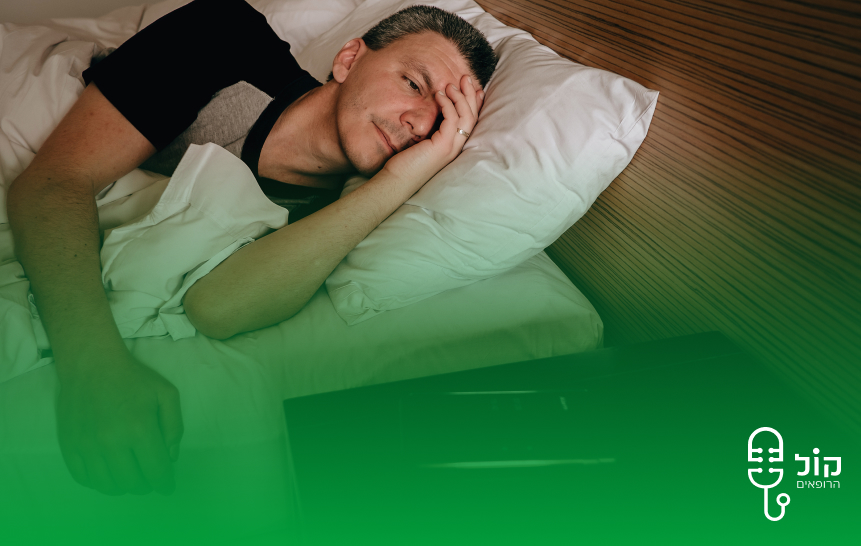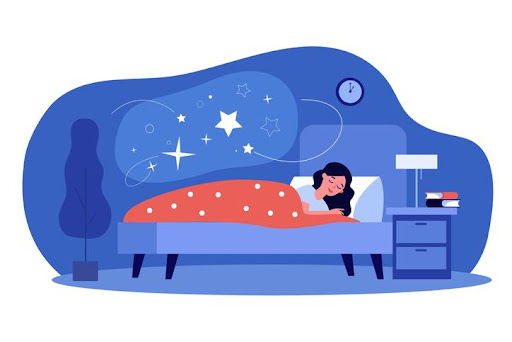
Sleep Disturbances & ADHD in Children
Three parts in Dr. Cortese Conference Session:
In the first one, he presented the results of the most recent systematic reviews and meta-analyses on the subjective (i.e., reported via questionnaires) and objective (i.e., assessed via actigraphy or polysomnography) sleep alterations in children and adolescents with ADHD.
In the second part, he discussed the bidirectional links between ADHD and sleep disorders and how sleep disturbances add to the burden of ADHD.
In the third part he presented the evidence-base for the treatment of sleep disturbances in ADHD.
Part 1: Meta- analysis
Sleep and ADHD in the clinical practice used to be overlooked by clinicians. This is changing with more recent guidelines including “sleep" issues specifically. The relevance of sleep issues relate to 1 distress it causes for the child and the family, the fact that sleep disturbances may worsen ADHD symptoms and that sleep disturbances may mimic ADHD symptoms in children misdiagnosed with ADHD. The meta-analysis conducted by Cortese et al 2 concluded that children with ADHD are significantly more impaired than the controls in most of the subjective and some of the objective sleep measures. These results laid the groundwork for future evidence-based guidelines on the management of sleep disturbances in children with ADHD.
A second study 3 , from 2016, found significant differences only in the meta-analysis with polysomnography as outcome. Children with ADHD were found to spend more time in stage 1 sleep than controls (pooled SMD = 0.32, 95% CI = 0.08-0.55, p value = 0.009). Although few differences in sleep between children with ADHD and controls have been found, further studies are required to examine the influence of assessment criteria and ADHD subtypes in the sleep characteristics of children with ADHD.
Part 2: Disorders
Several comorbidities may add to sleep issues in ADHD children.
Circadian rhythm disorder 4ADHD children with difficulties falling asleep may present with a circadian rhythm disorder determined by a delayed dim light melatonin onset.
Restless Leg Syndrome 5 (RLS)
RLS was found to be common in ADHD children and adolescents. RLS-mimic conditions were found in two-thirds of patients who previously met 4 essential RLS criteria. First-degree relative with RLS symptom was associated with RLS, and RLS was associated with functional impairment in the life skills and school (behavior) domains.
Sleep Disordered Breathing (SDB) – Differential Diagnosisor Co-Morbidity?
Primary disorder of alertness.
ADHD per se may account for difficulties falling asleep in some children with ADHD
Part 3: Evidence-base for the treatment of sleep disturbances in ADHD
Pharmacological Management 6 may have direct implications on sleep behavior. In a Metanalysis by Faraone et al. from 2019, significantly increased RRs for methylphenidate-associated sleep-related AEs were seen for: general insomnia (RR = 1.61, z = 9.2, P < .001), initial insomnia (RR = 2.78, z = 6.6, P < .001), middle insomnia (RR = 2.97, z = 183, P < .001), combined insomnia (RR = 2.97, z = 6.4, P < .001) and general sleep disorder (RR = 1.99, z = 4.2, P < .001)
The need for randomized control trials has been highlighted 7 as well as non -pharmacological treatments. The full study results by Corkum et al 8 for which only preliminary analyses were available when Cortese et al. reviewed the literature in 2012, have been published. This RCT aimed to assess the efficacy of a five-session manualized behavioral intervention for sleep problems in children with or without ADHD. The study showed that sleep of children randomized to the study intervention was rated as significantly improved by parents, compared to the control group, at postintervention (2 months) and 6-month follow-up.
Final recommendation for managing sleep disorders in ADHD9:
• Monitoring
• Implement sleep hygiene
• If behavioral measures are insufficient and it is not convenient to stop medication, review the possible causes of sleep problems:
• Treat RLS, mild sleep-disordered breathing (adenotonsillectomy)
• Consider rebound effect with psychostimulants: add small doses of short-acting psychostimulants in the evening
• If psychostimulant is the current treatment: consider reducing dose, alternative classes or formulations of psychostimulants, or atomoxetine (ATX)
• Consider adding melatonin
Presenter:
Dr. Samuele Cortese, MD, PhD is currently Professor of Child and Adolescent Psychiatry at the University of Southampton and Honorary Consultant Child and Adolescent Psychiatry for Solent NHS Trust. He is a member of the European ADHD Guidelines Group, as well as of the child and adolescent psychiatry faculty of the European Collegium of Neuropsychopharmacology (and of the British Association of Psychopharmacology-child and adolescent psychiatry module).
References
-
Cortese et al., The ADHD Report, 2006
-
Cortese S, Faraone SV, Konofal E, Lecendreux M. Sleep in children with attention-deficit/hyperactivity disorder: meta-analysis of subjective and objective studies. J Am Acad Child Adolesc Psychiatry. 2009 Sep;48(9):894-908. doi: 10.1097/CHI.0b013e3181ac09c9. PMID: 19625983.
-
Díaz-Román A, Hita-Yáñez E, Buela-Casal G. Sleep Characteristics in Children with Attention Deficit Hyperactivity Disorder: Systematic Review and Meta-Analyses. J Clin Sleep Med. 2016 May 15;12(5):747-56. doi: 10.5664/jcsm.5810. PMID: 26951416; PMCID: PMC4865562.
-
Van der Heijden KB, Smits MG, Van Someren EJ, Gunning WB. Idiopathic chronic sleep onset insomnia in attention-deficit/hyperactivity disorder: a circadian rhythm sleep disorder. Chronobiol Int. 2005;22(3):559-70. doi: 10.1081/CBI-200062410. PMID: 16076654.
-
Srifuengfung M, Bussaratid S, Ratta-Apha W, Sanguanpanich N, Hosiri T. Restless legs syndrome in children and adolescents with attention-deficit/hyperactivity disorder: prevalence, mimic conditions, risk factors, and association with functional impairment. Sleep Med. 2020 Sep;73:117-124. doi: 10.1016/j.sleep.2020.05.037. Epub 2020 Jun 4. PMID: 32827883.
-
Faraone SV, Po MD, Komolova M, Cortese S. Sleep-Associated Adverse Events During Methylphenidate Treatment of Attention-Deficit/Hyperactivity Disorder: A Meta-Analysis. J Clin Psychiatry. 2019 Apr 30;80(3):18r12210. doi: 10.4088/JCP.18r12210. PMID: 31090281.
-
Samuele Cortese & Marco Angriman (2017) Treatment of sleep disorders in youth with ADHD: what is the evidence from randomised controlled trials and how should the field move forward?, Expert Review of Neurotherapeutics, 17:6, 525-527, DOI: 10.1080/14737175.2017.1311789
-
Corkum P, Lingley-Pottie P, Davidson F, et al. Better nights/better days-distance intervention for insomnia in school-aged children with/without ADHD: a randomized controlled trial. J Pediatr Psychol. 2016;41:701–713.
-
Cortese S, Holtmann M, Banaschewski T, Buitelaar J, Coghill D, Danckaerts M, Dittmann RW, Graham J, Taylor E, Sergeant J; European ADHD Guidelines Group. Practitioner review: current best practice in the management of adverse events during treatment with ADHD medications in children and adolescents. J Child Psychol Psychiatry. 2013 Mar;54(3):227-46. doi: 10.1111/jcpp.12036.
כתבות נוספות שאולי יעניינו אותך
את.ה עומד.ת לעזוב את העמוד
האם את.ה בטוח.ה?



